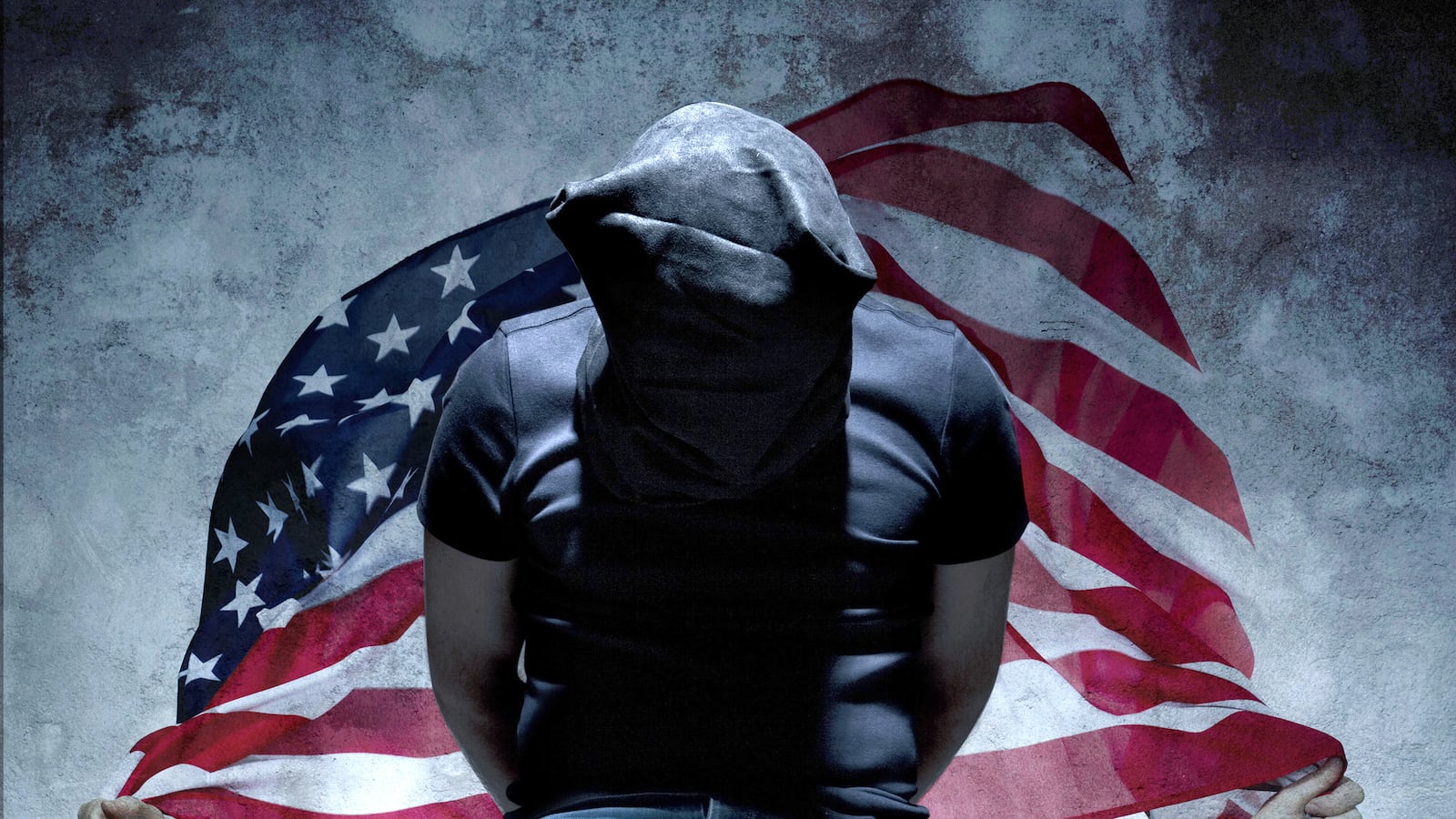By now, we’ve all glossed The Senate Select Committee on Intelligence’s “Study of the Central Intelligence Agency’s Detention and Interrogation Program or skimmed summaries of it, hunting for the sickest parts the same way we fast-forwarded through “Two Girls, One Cup” and The Human Centipede movies back in the day. Whatever its limitations, the “torture report” is a profoundly grim and dispiriting document, filled with more “rectal rehydrations” and other forms of ass play than the most outlandish fetish porn. God help us, it all took place on our taxpayer dime, all in the name of defending the Land of the Free and the Home of the Brave.
We need to be clear about the ultimate import of the torture report, which covers a period from late 2001 through 2009 and whose release was unconscionably delayed for years. It won’t be the cause of lowered international esteem for America or even attacks on overseas personnel. No, that’s all due to the same old failed interventionist foreign policy, massive and ongoing drone attacks, and the proliferation of “dumb wars” over the past dozen years under both Republican and Democratic presidents and Congresses.
The torture report is simply the latest and most graphic incarnation of an existential leadership crisis that has eaten through Washington’s moral authority and ability to govern, in the way road salt and rust eat through car mufflers in a Buffalo winter. “America is great because she is good,” wrote Tocqueville back in the day. “If America ceases to be good, America will cease to be great.” We’ve got a lot of explaining to do, not just to the rest of the world but to ourselves. How much longer will we countenance the post-9/11 national security state, which Edward Snowden’s ongoing revelations remind us are constantly mutating into new forms and outrages?
Amazingly, the early response to the torture report is almost as nauseating as the document itself. “I don’t want to know about it, I think people do nasty things in the dark,” whinged Fox News correspondent Jesse Watters on Outnumbered. “They didn’t even interview any of the CIA interrogators to do the report.” In the rush to avert his gaze, Watters didn’t bother reading footnote 3 on page 9 of the report, which documents how the CIA said “it would not compel CIA personnel to participate in interviews” with the committee. Watters and other critics also ignore the fact that the whole report is based on CIA documents. The investigators didn’t bother interviewing any Gitmo prisoners, either.
The CIA’s official response is hardly better, stressing that no, really, torture—or, rather, “enhanced interrogation techniques” worked to generate at least some useful information. Or, in a twist that mixes Kafka and Orwell, to make sure that prisoners didn’t actually possess useful information. This is an agency that spied on the very committee investigating it and whose current director is an admitted liar.
Former CIA Director Michael Hayden, who served in that position from 2006 through 2009 and comes in for unsparing treatment in the report (an entire appendix is devoted to his “inaccurate testimony” in 2007), has been simultaneously outspoken and Jesuitical in his response. Even as he says it’s all lies, he’s been careful to get legalistic in his definitions. “Lying is intentionally, intentionally misleading someone, all right,” he told Newsmax. This sounds uncomfortably like a George Costanza line from Seinfeld: “Remember, Jerry: It’s not a lie if you believe it.”
Given the parade of top men in the national surveillance apparatus who have brazenly lied to Congress, it’s also not compelling when Hayden says, “I don’t know why I would go there to try to be inaccurate, incomplete or deceptive in front of my oversight committee.” Among the obvious reasons: Because they would have told you to stop. Because you were covering up for actions that may or may not have been legally authorized. Because, like so many spooks before you, you thought you were above or beyond the law.
This isn’t to say the torture report is the inerrant word of God and that there are no grounds upon which to criticize the torture report or even the timing of its release. There are plenty of those, too, which is precisely why the whole episode calls into question the government’s moral authority and practical efficiency. Nobody here has credibility. Claims that they never knew about waterboarding and other enhanced interrogation techniques by leaders such as Nancy Pelosi have never been particularly credible. Sen. Dianne Feinstein notes at the very start of the report, the original investigations started in 2007 when it came to light that the CIA had destroyed (accidentally!) video of its interrogations. What took so long for this all to see the light of day? And for all President Obama’s cloying campaign patter about transparency, he still chose to keep 9,400 CIA documents from the Senate Committee, citing “executive privilege.” Some secrets, it seems, must be kept even from elected representatives who could still be sworn to secrecy.
While she may draw the line at torture, Feinstein herself is a brazen apologist for the national surveillance state, insisting against the evidence that the 2009 arrests of terrorists Najibullah Zazi and David Headley only came about because of National Security Agency collection programs that illegally captured the metadata and other communications of Americans in the United States.
But such criticisms don’t blunt the power of the torture report in any way, shape, or form. Even if the release was timed to shame the new Republican majority in Congress or pull the spotlight off Obamacare architect John Gruber’s pathetic testimony (as some conservatives allege), so what? Apologists for torture really are in no position to bitch and moan about the timing of revelations.
For most of the 21st century, faith in government has been fading like the last light sent off by a star that had died long before we even knew of its existence. Record low numbers of Americans trust the government to do the right thing and record high numbers see it as the biggest threat to the future. The 2000 presidential election was essentially decided by a coin toss, an unnerving reality from which we have never fully recovered. If the highest office in the land is governed by such caprice, maybe all of government is equally unmoored to anything other than a will to power and sheer luck. George W. Bush went into Iraq under specious circumstances. Under the most charitable interpretation, his administration was simply mistaken. Elected on a promise to undo Bush’s record on civil liberties, state surveillance, and foreign policy, Barack Obama arguably has been worse on every score. Is it any wonder that control of Congress is swinging back and forth like a tetherball?
The leadership in both parties is laughable and ineffective, incapable even of pushing a budget through in the official manner while missing no opportunity to sermonize on the real and imagined evils of their legislative adversaries. The torture report taunts both sides equally because in the final analysis, the difference between “How could you support this?” and “How could you let this happen?” is morally null and void.
In reading through the torture report, my mind kept turning to Bernard Malamud’s stunning debut novel, The Natural (1952). The Hollywood version of it predictably and pathetically turned the story into a tale of redemption and triumph, both of which are totally missing from Malamud’s pages. Ostensibly about a uniquely gifted baseball player, Roy Hobbs, who gives into temptation and dissipation, the novel is an allegory about America’s great but unrealized potential to be a beacon of freedom and opportunity for all, to be a “shining city on a hill.”
In what will be his last at bat in the big leagues, Hobbs decides to double-cross the gamblers with whom he has conspired to throw the game. Instead, he gives his very best effort and tries to win the World Series with a single swing of his bat. Alas, his soul is willing, but his flesh is weak and he whiffs. Not only that, the gamblers out him and he is publicly disgraced. A newsboy spots him and shoves a paper with the headline “Suspicion of Hobbs’s Sellout” into his hand: “‘Say it ain’t true, Roy.’ When Roy looked into the boy’s eyes he wanted to say it wasn’t but couldn’t, and he lifted his hands to his face and wept many bitter tears.”
This is where we are as a nation. For far too long, we have been coasting on a moral authority to which we long ago lost any clear title. We will not be able to win it back any more easily or swiftly that Roy Hobbs. This is a time for many bitter tears and, one can only hope, a better future.






